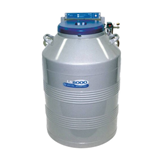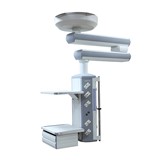The report, 'OECD health-care quality indicators in Australia 2011-12', profiles the information Australia provided in 2013 to the Organisation for Economic Co-operation and Development covering quality in primary care, hospital acute care, and mental health-care, as well as information on cancer care, hospital patient safety and patient experience.
AIHW spokesperson Nigel Harding explains: "Quality in primary care was measured by rates of avoidable hospital admissions for particular health conditions."
In 2011, avoidable hospital admission rates for asthma and chronic obstructive pulmonary disease in Australia were around 50 per cent higher than the OECD average. Avoidable admission rates for diabetes were similar to or better than the OECD average.
For quality indicators in hospital acute care, Australia's death rate following hospital admissions for heart attacks was lower than the OECD average, similar to the OECD average for haemorrhagicstroke, but higher than the average for ischaemic stroke.
"Australia performed well when looking at the indicators for cancer care-from 2001-06 to 2006-11," said Harding.
"Five-year survival rates for cervical, breast and colorectal cancers were better in Australia than the OECD averages."
The mental healthcare indicators relate to unplanned hospital readmissions for schizophrenia and bipolar disorder. Rates of readmission were higher in Australia than the OECD average for both indicators.
Hospital patient safety covers events experienced by patients as a result of exposure to the healthcare system - either adverse events, which cannot be totally avoided, or events that should never occur.
Harding continued: "Australia's rates for indicators such as postoperative complications and obstetric trauma were generally higher than the 2011 OECD averages; however, we think this is largely due to differences in reporting internationally, and specifically, better patient safety and monitoring of these events in Australia."
Patients' perceptions of the adequacy of the time spent with them by a doctor during a consultation are used to assess patient experience.
In 2011-12, 87 per cent of patients in Australia said that for all GPs they had seen in the past 12 months, the doctor had spent enough time with them. This is the same as the OECD average.
Harding states: "While differences in data collection practices and data quality can make international comparisons challenging, there is no doubt that Australia is doing well on most counts, but there is room for improvement in some areas."
The AIHW is a major national agency set up by the Australian government to provide reliable, regular and relevant information and statistics on Australia's health and welfare.













-160x160-state_article-rel-cat.png)




